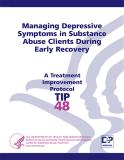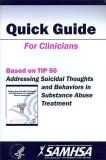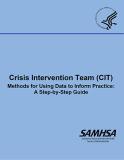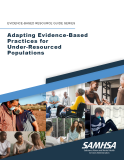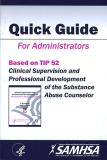
This guide offers tips for program administrators on developing an effective program for clinical supervision in the substance use disorder treatment field. It addresses cultural competence, and describes supervisor ethics and values.
Units per Product
Download
Quick Guide for Administrators - TIP 52
File Type: PDF
File Size: 316 KB


